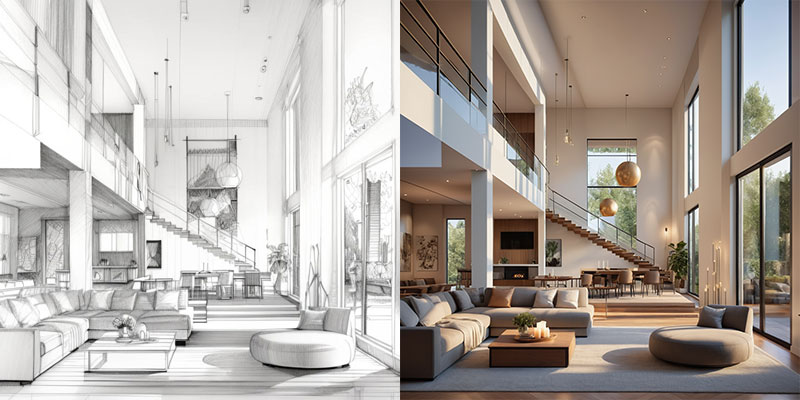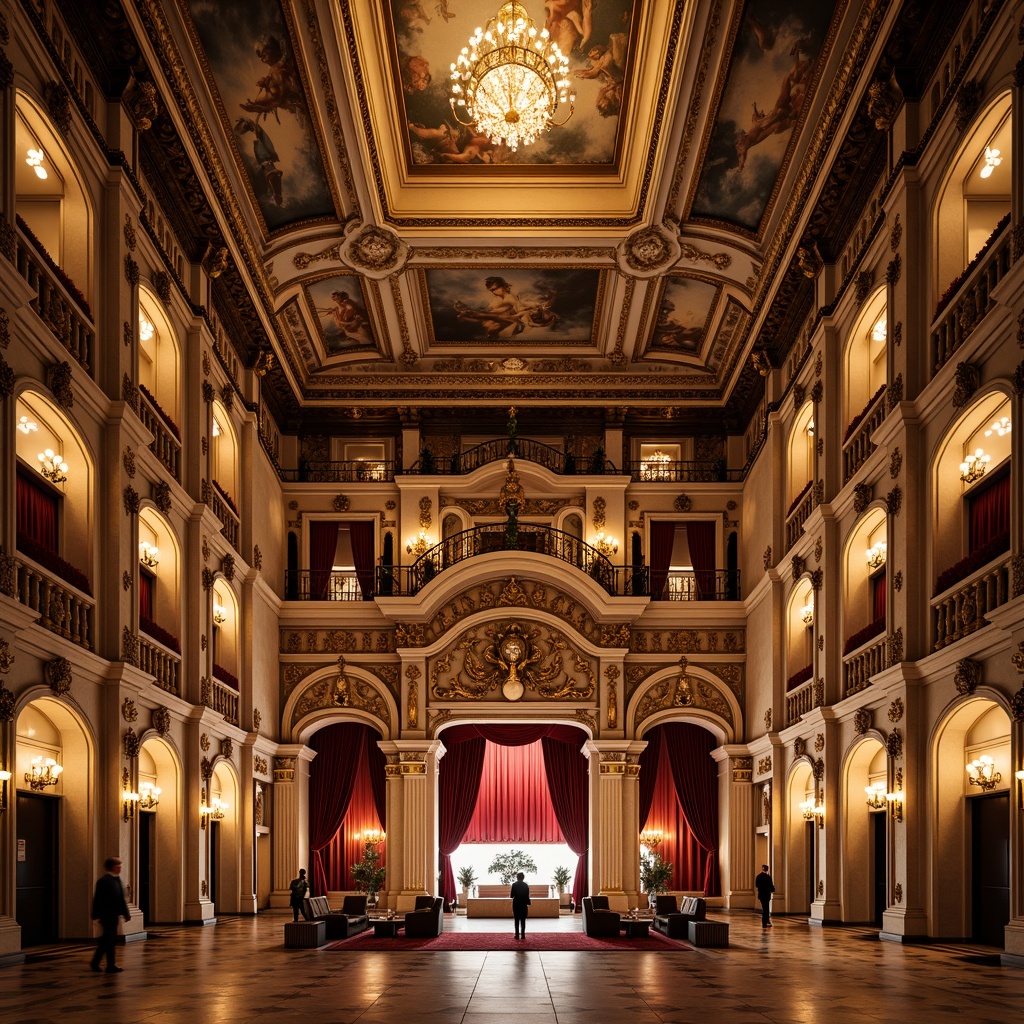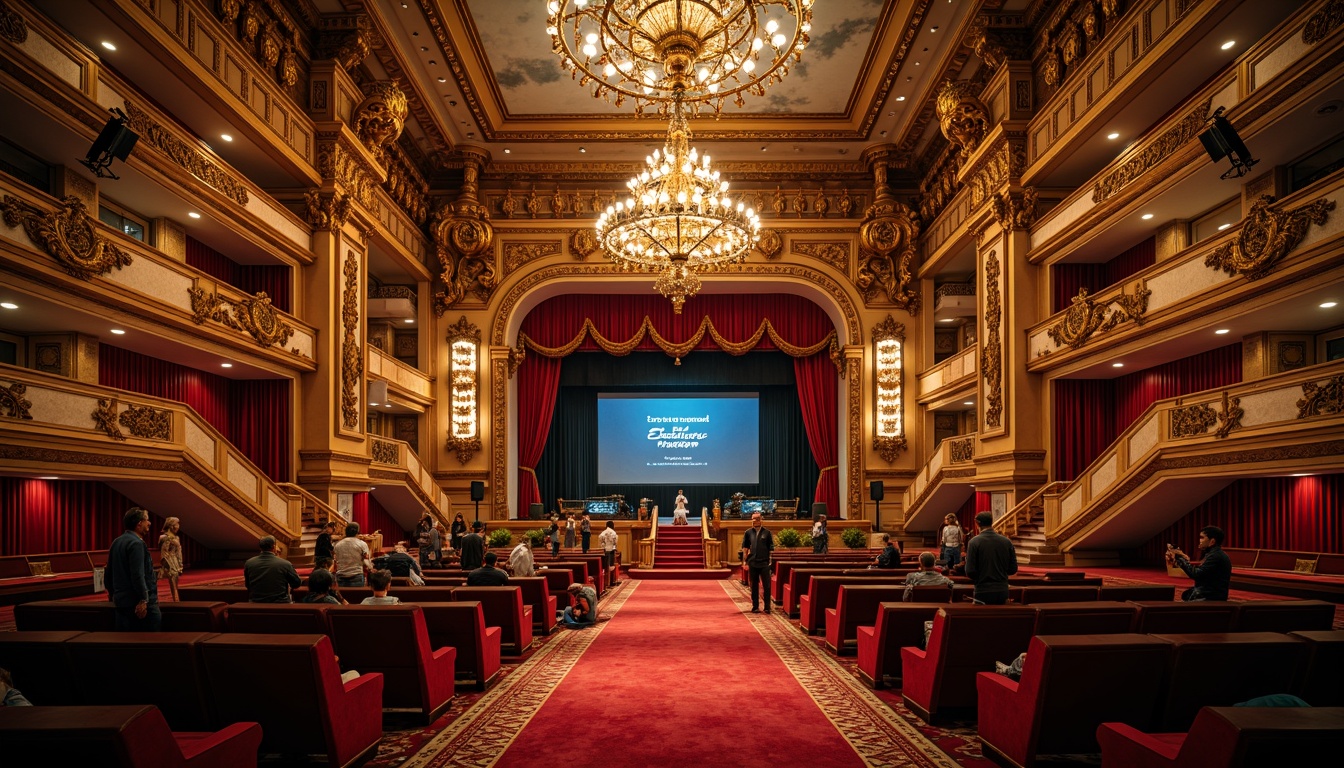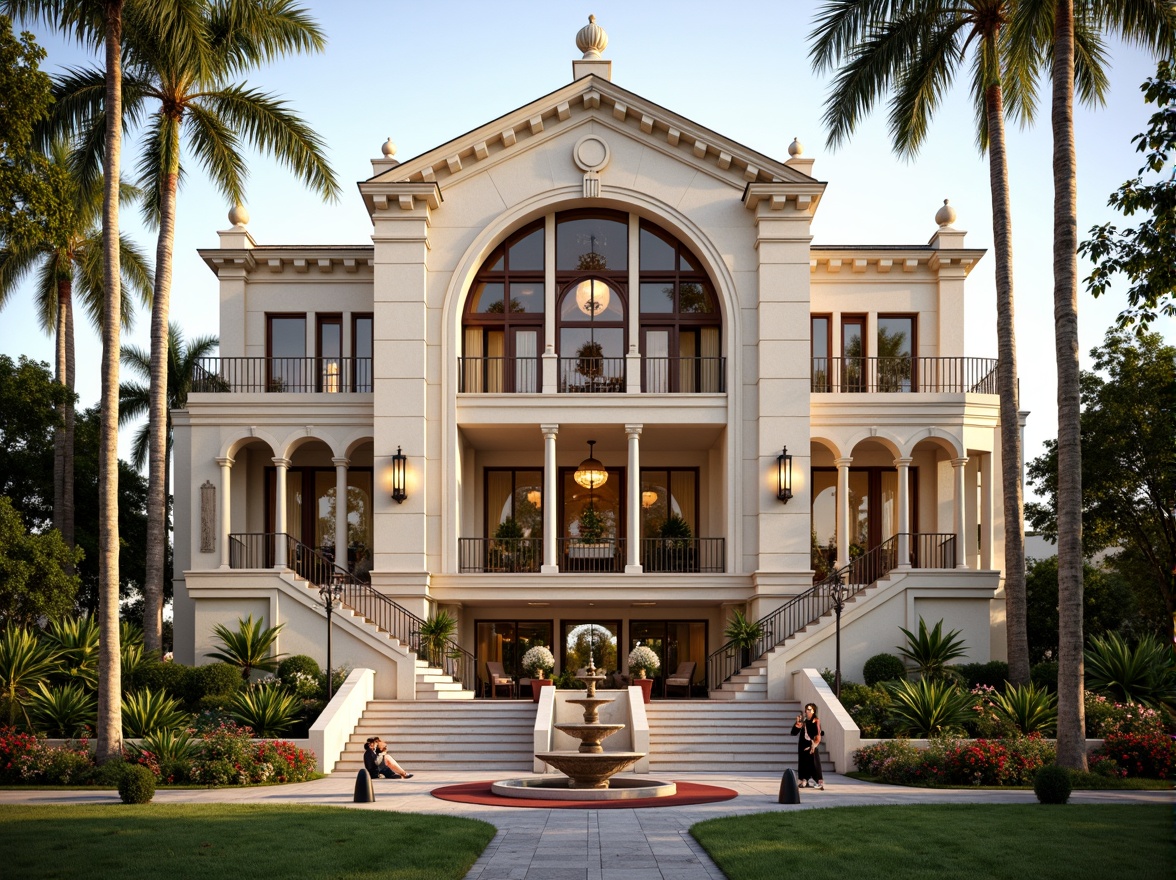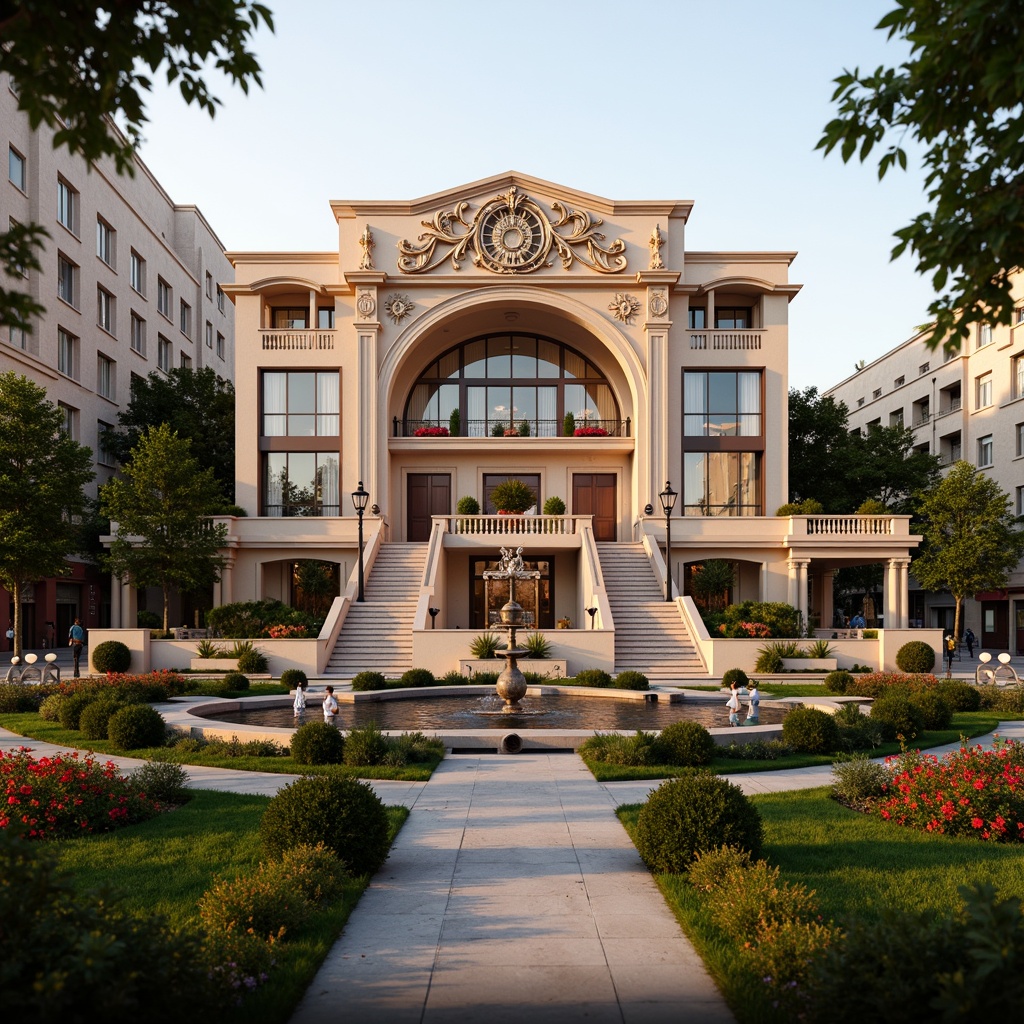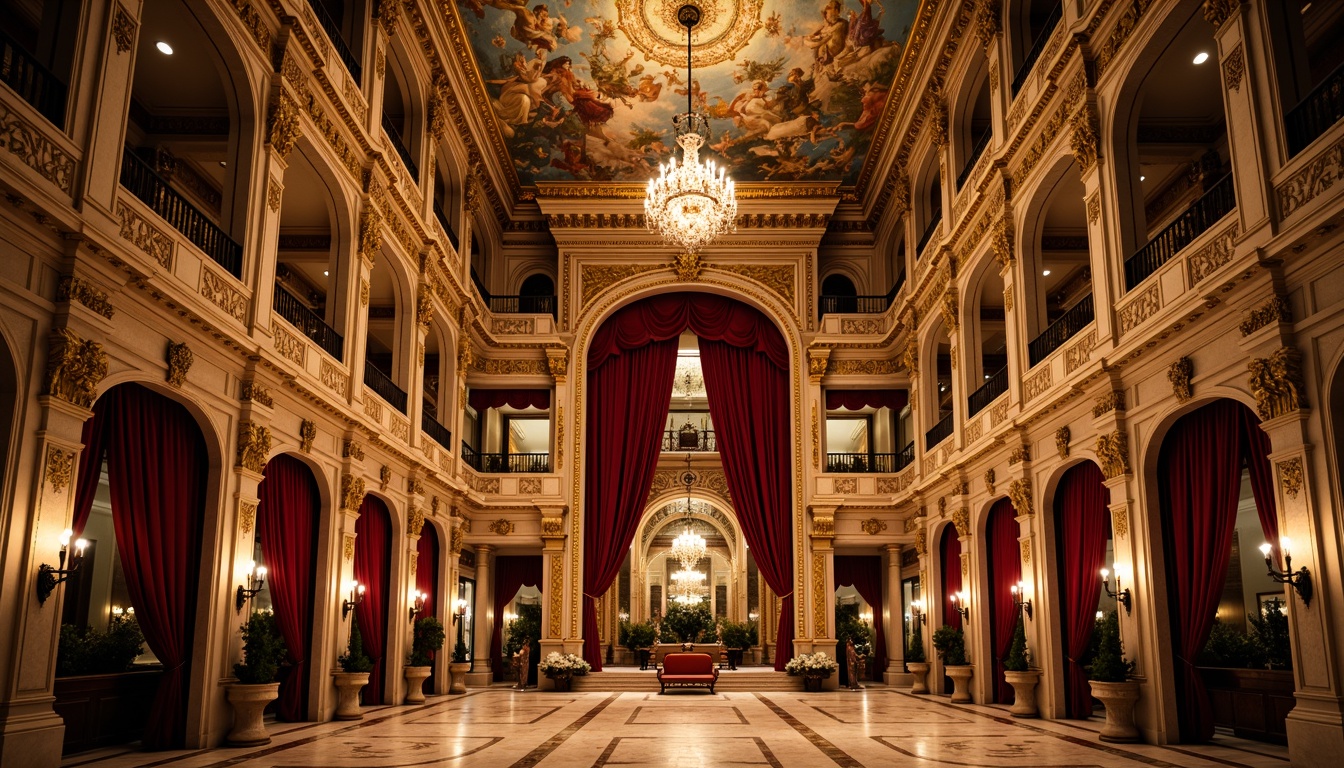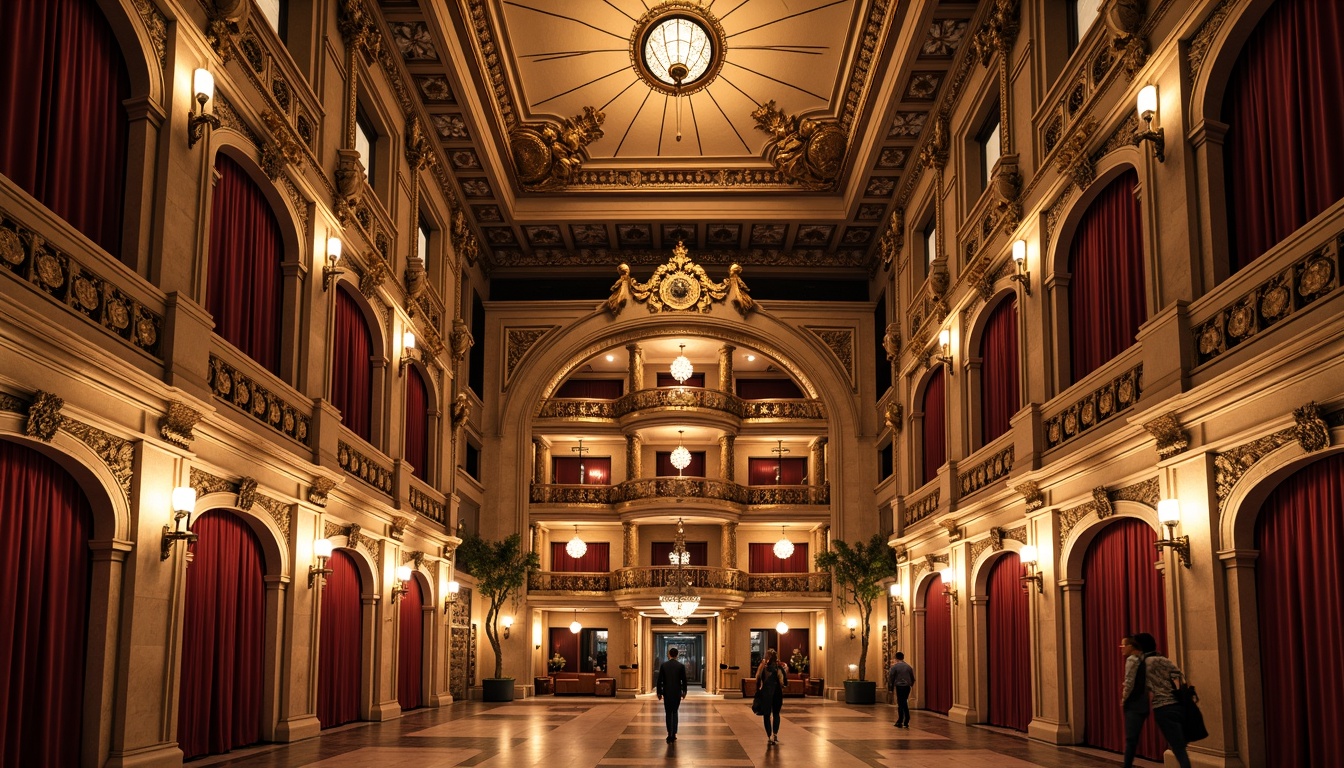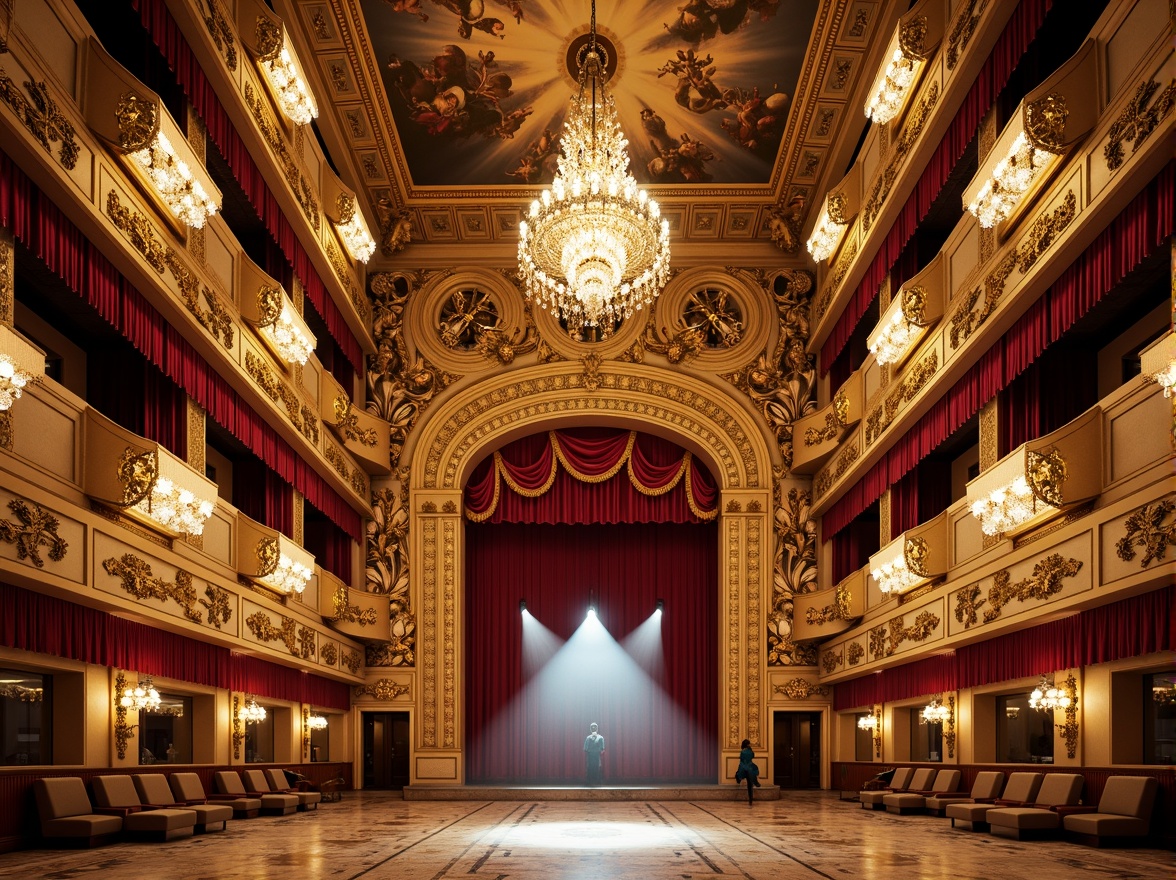دعو الأصدقاء واحصل على عملات مجانية لكم جميعًا
Baroque Style Opera House Architecture Design Ideas
Explore the captivating world of Baroque style architecture through our collection of opera house designs. This style is characterized by its grandeur, elaborate ornamentation, and a rich color palette, often highlighted through materials like fiber-cement. The use of magenta color adds an unexpected vibrancy, while the surrounding park enhances the overall aesthetic. Let these designs inspire your next architectural project, whether for a public building or private residence.
Incorporating Ornate Details in Baroque Style Opera Houses
Ornate details play a pivotal role in Baroque style architecture, especially in opera houses. These intricate elements not only enhance the visual appeal but also convey a sense of opulence and sophistication. From lavish moldings to decorative frescoes, each detail contributes to the overall grandeur of the structure. By focusing on these ornate aspects, architects can create a breathtaking experience for visitors, immersing them in the historical and artistic essence of the Baroque era.
Sculptural Elements That Define Baroque Architecture
Sculptural elements are essential in defining the essence of Baroque architecture, particularly in opera houses. These elements often manifest as statues, reliefs, and dramatic facades that serve both aesthetic and functional purposes. They create focal points that draw the eye and enhance the narrative of the building. Incorporating sculptural designs can transform an ordinary facade into a stunning visual masterpiece, making it not just a building but a work of art.
Creating a Unique Color Palette for Your Opera House Design
A distinctive color palette is crucial in Baroque style architecture, particularly for opera houses. The use of colors like magenta can evoke emotions and set a dramatic tone. This bold choice, combined with traditional colors, can help establish a cohesive design language. By thoughtfully selecting colors that reflect the grandeur of the Baroque period, architects can create spaces that are not only visually striking but also deeply evocative, enhancing the overall experience for visitors.
Prompt: Grand opera house, ornate architecture, rich velvet curtains, golden chandeliers, intricate moldings, luxurious red carpeting, majestic staircases, opulent furnishings, lavish decorations, Baroque-inspired details, warm soft lighting, dramatic spotlights, 3/4 composition, shallow depth of field, realistic textures, ambient occlusion, vibrant crimson hues, deep emerald greens, rich navy blues, metallic gold accents, subtle cream tones.
Landscaping Ideas for Enhancing Your Opera House Design
Landscaping is a vital aspect of enhancing the overall aesthetic of Baroque style opera houses. Thoughtful landscaping can complement the architecture, creating a harmonious relationship between the building and its surroundings. Features such as manicured gardens, classical statues, and water elements can amplify the grandeur of the opera house, inviting visitors to explore both the interior and exterior spaces. A well-designed landscape not only enhances beauty but also creates a welcoming atmosphere.
Prompt: Grand opera house, ornate facade, majestic entrance, sweeping staircases, lush greenery, vibrant flowers, manicured lawns, decorative fountains, walking paths, elegant street lamps, urban cityscape, warm golden lighting, shallow depth of field, 1/2 composition, symmetrical architecture, neoclassical style, marble columns, intricate moldings, grand chandeliers, red carpet, luxurious textiles, ornate balconies.
Prompt: Grand opera house, ornate facade, majestic entrance, sweeping staircases, lush greenery, vibrant flowers, manicured lawns, decorative fountains, walking paths, elegant street lamps, urban cityscape, warm golden lighting, shallow depth of field, 1/2 composition, symmetrical architecture, neoclassical style, marble columns, intricate moldings, grand chandeliers, red carpet, luxurious textiles, ornate balconies.
Innovative Facade Design in Baroque Style Opera Houses
Facade design is crucial in Baroque style architecture, especially for opera houses. The facade serves as the face of the building, making a powerful first impression. Innovative designs that incorporate traditional Baroque elements, such as elaborate cornices and arches, can create a striking visual impact. By blending modern materials like fiber-cement with historical design principles, architects can achieve a facade that is both timeless and contemporary, making the opera house a landmark in its environment.
Prompt: Ornate opera house facade, grandiose Baroque architecture, intricately carved stone details, gilded ornaments, sweeping arches, ornamental balconies, red velvet curtains, crystal chandeliers, majestic entrance halls, marble floors, frescoed ceilings, dramatic spotlights, warm golden lighting, shallow depth of field, 1/2 composition, symmetrical framing, highly detailed textures, ambient occlusion.
Prompt: Ornate opera house facade, grandiose Baroque architecture, intricately carved stone details, gilded ornaments, sweeping arches, ornamental balconies, red velvet curtains, crystal chandeliers, majestic entrance halls, marble floors, frescoed ceilings, dramatic spotlights, warm golden lighting, shallow depth of field, 1/2 composition, symmetrical framing, highly detailed textures, ambient occlusion.
Prompt: Ornate opera house facade, grandiose Baroque architecture, intricately carved stone details, gilded ornaments, sweeping arches, ornamental balconies, red velvet curtains, crystal chandeliers, majestic entrance halls, marble floors, frescoed ceilings, dramatic spotlights, warm golden lighting, shallow depth of field, 1/2 composition, symmetrical framing, highly detailed textures, ambient occlusion.
Prompt: Ornate opera house facade, grandiose Baroque architecture, intricately carved stone details, gilded ornaments, sweeping arches, ornamental balconies, red velvet curtains, crystal chandeliers, majestic entrance halls, marble floors, frescoed ceilings, dramatic spotlights, warm golden lighting, shallow depth of field, 1/2 composition, symmetrical framing, highly detailed textures, ambient occlusion.
Conclusion
The Baroque style in architecture, particularly for opera houses, offers a rich tapestry of design elements that can transform a space into a work of art. With ornate details, sculptural elements, a vibrant color palette, thoughtful landscaping, and innovative facade designs, this architectural style provides limitless possibilities. Whether used in public buildings or private residences, the Baroque style remains a powerful choice, evoking a sense of history and grandeur that captivates all who experience it.
Want to quickly try opera-house design?
Let PromeAI help you quickly implement your designs!
Get Started For Free
Other related design ideas

Baroque Style Opera House Architecture Design Ideas

Baroque Style Opera House Architecture Design Ideas

Baroque Style Opera House Architecture Design Ideas

Baroque Style Opera House Architecture Design Ideas

Baroque Style Opera House Architecture Design Ideas

Baroque Style Opera House Architecture Design Ideas

